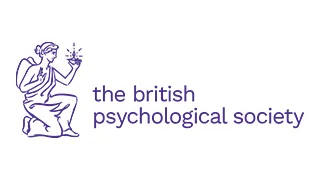About this course
Ranked in the UK’s top 10 for psychology (Guardian University Guide 2026), our BSc in Psychology lets you explore the human mind and behaviour in depth. This highly useful degree course will let you analyse human choices, emotions, motivations and beliefs through research and data analysis.
On this course, we offer you a broad range of subjects to delve into, such as social psychology and neuroscience, leading to more specific subjects such as child development and the psychology of advertising.
This degree is accredited by the British Psychological Society, and you’ll be eligible for membership when you graduate.
Our facilities will support you in every area of research. They include:
- a custom-fit mobile research vehicle for community research
- eye movement recording facilities
- an observation lab with audiovisual studio
- a virtual reality (VR) laboratory
As part of your psychology degree you can:
- study a second subject as a minor discipline
- study abroad at one of our partner universities including the University of Sydney, University of Hong Kong, and University of Western Ontario
- study modules outside of psychology to broaden your knowledge, including criminology, social sciences and law
You could be involved in all aspects of the department’s research process, working alongside postgraduate students or academic staff in one of our research centres:
- Perception and Cognition
- Innovation in Mental Health
- Self and Identity
- Clinical and Community Applications of Health Psychology
We regularly review our courses to ensure and improve quality. This course may be revised as a result of this. Any revision will be balanced against the requirement that the student should receive the educational service expected. Find out why, when, and how we might make changes.
Our courses are regulated in England by the Office for Students (OfS).
Accreditations

I discovered that within Psychology at Southampton I am given the opportunity to do modules within Criminology so now I am essentially doing both things I really wanted to do which makes the degree even more enjoyable!
Course location
This course is based at Highfield.
Awarding body
This qualification is awarded by the University of Southampton.
Download the Course Description Document
The Course Description Document details your course overview, your course structure and how your course is taught and assessed.
Entry requirements
For Academic year 202627
A-levels
AAB including one accepted science subject or AAA if not studying a required subject.
A-levels additional information
Offers typically exclude General Studies and Critical Thinking. Accepted science subjects are; Biology, Chemistry, Physics, Mathematics, Psychology, Statistics, Environmental Science, Environmental Studies, Geography and Geology
A-levels with Extended Project Qualification
If you are taking an EPQ in addition to 3 A levels, you will receive the following offer in addition to the standard A level offer: ABB including one accepted science subject, and grade A in the EPQ or AAB and grade A in the EPQ if not studying a required subject.
A-levels contextual offer
We are committed to ensuring that all applicants with the potential to succeed, regardless of their background, are encouraged to apply to study with us. The additional information gained through contextual data allows us to recognise an applicant's potential to succeed in the context of their background and experience. Applicants who are highlighted in this way will be made an offer which is lower than the typical offer for that programme as follows: BBB including one accepted science subject or AAB if not studying a required subject.
International Baccalaureate Diploma
Pass, with 34 points overall with 665 points at Higher Level, including an accepted science subject at Higher Level, or Pass, with 36 points overall with 666 at Higher Level
International Baccalaureate contextual offer
We are committed to ensuring that all learners with the potential to succeed, regardless of their background, are encouraged to apply to study with us. The additional information gained through contextual data allows us to recognise a learner’s potential to succeed in the context of their background and experience. Applicants who are highlighted in this way will be made an offer which is lower than the typical offer for that programme.
International Baccalaureate Career Programme (IBCP) statement
Offers will be made on the individual Diploma Course subject(s) and the career-related study qualification. The CP core will not form part of the offer. Where there is a subject pre-requisite(s), applicants will be required to study the subject(s) at Higher Level in the Diploma course subject and/or take a specified unit in the career-related study qualification. Applicants may also be asked to achieve a specific grade in those elements. Please see the University of Southampton International Baccalaureate Career-Related Programme (IBCP) Statement for further information. Applicants are advised to contact their Faculty Admissions Office for more information.
BTEC
RQF BTEC
DDD in the BTEC National Extended Diploma DD in the BTEC National Diploma plus A in one A-level subject, D in BTEC National Extended Certificate plus grades AA from 2 A-levels
We are committed to ensuring that all applicants with the potential to succeed, regardless of their background, are encouraged to apply to study with us. The additional information gained through contextual data allows us to recognise an applicant's potential to succeed in the context of their background and experience. Applicants who are highlighted in this way will be made an offer which is lower than the typical offer for that programme,
Additional information
BTEC Extended Diploma must be in a relevant subject area
QCF BTEC
DDD in the BTEC Extended Diploma DD in the BTEC Diploma plus A in one A-level subject D in the BTEC Subsidiary Diploma plus grades AA from 2 A-levels
BTEC contextual
We are committed to ensuring that all applicants with the potential to succeed, regardless of their background, are encouraged to apply to study with us. The additional information gained through contextual data allows us to recognise an applicant's potential to succeed in the context of their background and experience. Applicants who are highlighted in this way will be made an offer which is lower than the typical offer for that programme.
Access to HE Diploma
60 credits with a minimum of 45 credits at Level 3, of which 39 must be at Distinction and 6 credits at Merit or 60 credits with a minimum of 45 credits at Level 3 of which 45 credits must be at Distinction if not studying a required subject.
Access Offer Contextual
We are committed to ensuring that all learners with the potential to succeed, regardless of their background, are encouraged to apply to study with us. The additional information gained through contextual data allows us to recognise a learner’s potential to succeed in the context of their background and experience. Applicants who are highlighted in this way will be made an offer which is lower than the typical offer for that programme.
Irish Leaving Certificate
Irish Leaving Certificate (first awarded 2017)
H1 H1 H2 H2 H2 H2 or H1 H2 H2 H2 H2 H2 if not studying a required subject.
Irish Offer Contextual
We are committed to ensuring that all learners with the potential to succeed, regardless of their background, are encouraged to apply to study with us. The additional information gained through contextual data allows us to recognise a learner’s potential to succeed in the context of their background and experience. Applicants who are highlighted in this way will be made an offer which is lower than the typical offer for that programme.
Scottish Qualification
Offers will be based on exams being taken at the end of S6. Subjects taken and qualifications achieved in S5 will be reviewed. Careful consideration will be given to an individual’s academic achievement, taking in to account the context and circumstances of their pre-university education.
Please see the University of Southampton’s Curriculum for Excellence Scotland Statement (PDF) for further information. Applicants are advised to contact their Faculty Admissions Office for more information.
Cambridge Pre-U
D3 D3 M2 or D3 D3 D3 if not studying a required subject.
Cambridge Pre-U additional information
Cambridge Pre-U's can be used in combination with other qualifications such as A Levels to achieve the equivalent of the typical offer, where D3 can be used in lieu of A Level grade A or grade M2 can be used in lieu of grade B.
Cambridge Pre-U Offer Contextual
We are committed to ensuring that all learners with the potential to succeed, regardless of their background, are encouraged to apply to study with us. The additional information gained through contextual data allows us to recognise a learner’s potential to succeed in the context of their background and experience. Applicants who are highlighted in this way will be made an offer which is lower than the typical offer for that programme.
Welsh Baccalaureate
AAB including one accepted science subject. AAA if not studying a required subject or AA from two A levels including one accepted science subject and Grade B from the Advanced Skills Baccalaureate Wales or Grades AA from 2 A-levels plus Advanced Skills Baccalaureate Wales
Welsh Baccalaureate contextual offer
We are committed to ensuring that all learners with the potential to succeed, regardless of their background, are encouraged to apply to study with us. The additional information gained through contextual data allows us to recognise a learner’s potential to succeed in the context of their background and experience. Applicants who are highlighted in this way will be made an offer which is lower than the typical offer for that programme.
T-Level
An overall distinction with grade A in the core element in the Science or Healthcare Science T-Level
Other requirements
GCSE requirements
Applicants must hold GCSE English language (or GCSE English) and GCSE Mathematics at a minimum grade 4/C.
Find the equivalent international qualifications for our entry requirements.
English language requirements
If English is not your first language, you must show that you can use English to the level we require. Visit our English language pages to find out which qualifications we accept and how you can meet our requirements.
If you are taking the International English Language Testing System (IELTS), you must get at least the following scores:
IELTS score requirements
- overall score
- 6.5
- reading
- 6.0
- writing
- 6.0
- speaking
- 6.0
- listening
- 6.0
If you do not meet the English language requirements through a test or qualification, you may be able to meet them by completing one of our pre-sessional English programmes before your course starts.
You might meet our criteria in other ways if you do not have the qualifications we need. Find out more about:
- skills you might have gained through work or other life experiences (otherwise known as recognition of prior learning)
Find out more about our Admissions Policy.
Mature applicants
We welcome applications from learners of all ages. Students who are aged 21 and over at the start of their undergraduate course are defined as mature by the University of Southampton. We take a holistic assessment of the application looking for academic ability and commitment to study. Typical entry requirements, which may vary from discipline to discipline, includes for example, evidence of recent formal academic qualifications or professional qualifications, relevant work experience or volunteering. You may also be invited to attend an interview with an Admissions Tutor. For some degree programmes, there may also be a Professional, Statutory and Regulatory Body (PSRB) requirement. We accept many different academic qualifications. For more information, please contact the Admissions Team.
Got a question?
Please contact our enquiries team if you're not sure that you have the right experience or qualifications to get onto this course.
Email: enquiries@southampton.ac.uk
Tel: +44(0)23 8059 5000
Course structure
This BSc psychology course, introduces you to the essential principles of psychological theory, including the broad areas of clinical, cognition, social, health and developmental psychology. You’ll also learn the key research methods and data analysis techniques that will support your own research studies.
Year 1 overview
In year 1 you’ll learn about the fundamentals of the science of psychology, and will focus on 2 core areas: individual differences and behavioural neuroscience. You’ll also start your research methods training.
Your core and compulsory modules are:
- Introduction to Psychology
- Individual Differences
- Behavioural Neuroscience
- Research Methods and Data Analysis I and II
- Psychology of Attractiveness
- Thinking Psychologically
In semester 2 you’ll choose 1 optional module from within psychology (Psychology of Mental Health) or from another subject area of the University. This interdisciplinary approach is designed to help you engage in globally relevant issues and to develop skills and knowledge beyond psychology.
Year 2 overview
You’ll focus on more fundamental areas of psychology. Your research training and practical tuition will be expanded to prepare you for your final year project.
Your core modules are:
- Developmental Psychology
- Perception
- Social Psychology
- Research Methods and Data Analysis III
- Empirical Studies
Your 2 optional modules can be chosen from within psychology (Introduction to Health Psychology and Cognitive Neuroscience), or you can follow your interests and career plans by choosing modules from other subject areas in the University.
Year 3 overview
You’ll use the research and analysis skills you’ve developed to carry out a literature review of a topic of your choosing. You’ll form a hypothesis, then research and produce a paper on your findings. We encourage cutting-edge student research, so you might use methods like surveys, video observation, electro-cortical brain recordings, eye tracking and physiological measures of heart rate and skin conductance.
Your final core module will focus on current issues in clinical psychology. You’ll select 5 more modules from a list that includes possible career specialisms to explore, including:
- Human Animal Interactions
- Educational Psychology
- Psychology of Advertising
- Social and Affective Neuroscience
- Intergroup Relations and Interpersonal Influence
You can also choose up to 2 modules from outside of psychology.
Want more detail? See all the modules in the course.
Modules
The modules outlined provide examples of what you can expect to learn on this degree course based on recent academic teaching. As a research-led University, we undertake a continuous review of our course to ensure quality enhancement and to manage our resources. The precise modules available to you in future years may vary depending on staff availability and research interests, new topics of study, timetabling and student demand. Find out why, when and how we might make changes.
For entry in academic year 2026 to 2027
Year 1 modules
You must study the following modules in year 1:
Academic Support and Employability 1
This module sits alongside the academic modules that make up your degree programme. As such, this is a ZERO credit module. Nevertheless, we believe that this module is so important to your success that it should be taken by all students. Thus, it is a C...
Behavioural Neuroscience
The module aims to develop the themes introduced in the Introduction to Psychology Module in semester 1. The module integrates the approaches and findings of biological psychology in an attempt to understand the biological factors that explain why people...
Individual Differences
The course covers the topics of personality and intelligence from the perspective of individual differences. Some research psychologists explore the ways in which people are the same and seek to draw general conclusions about human nature. However...
Learning to Learn
Learning to Learn is designed to provide students with an introduction to cognitive psychology, with an emphasis on memory and learning in educational contexts. The module specifically aims to explore the gap between how people think they should learn and...
Psychology of Attractiveness
In this module, we will explore possible answers to questions such as: What constitutes physical and interpersonal attraction? How many types of love are there? Where are the main sources of attraction? What difference do relationships make to people's li...
Research Methods & Data Analysis II (& Empirical Studies)
This module is designed to extend understanding of the research methods and data analysis techniques introduced in the first semester of the first year. You will be introduced to further statistical techniques used in psychology and learn to apply them bo...
Research Methods and Data Analysis I
Psychology is a science that involves experimental work and data analysis. The module will provide the fundamental information required to progress to more complex statistical techniques taught in Semester 2 and Year 2. Learning about research methods and...
You must also choose from the following modules in year 1:
Ideas that Shape the Contemporary World - Work, Change and Organisations
This module helps you to build an intellectual foundation to business as a field of inquiry. The module links big topics to the everyday workings of organisations and individuals. You will locate the emergence of business, management, and the modern world...
The Psychology of Mental Health
This module will be an introduction to the psychology of metal health and wellbeing. Students will first learn about the links between wellbeing and mental health. We will also cover how we define and categorise mental health using modern diagnostic sy...
Year 2 modules
You must study the following modules in year 2:
Academic Support and Employability 2
This module sits alongside the academic modules that make up your degree programme. As such, this is a ZERO credit module. Nevertheless, we believe that this module is so important to your success that it should be taken by all students. Thus, it is a C...
Current issues in Clinical Psychology
The module will provide an introduction to adult psychopathology, to present the psychological and biological models that have been developed to explain a variety of psychological disorders, and to examine both the empirical foundation of these models and...
Developmental Psychology
This module will develop your understanding and knowledge of development across childhood, adolescence, adulthood, and old age. We will present historical and current research studies and explain how these link to related theoretical frameworks. The mod...
Empirical Studies II
The module is to learn and apply practical and technical skills in the context of real research, for example, * relating designs to research questions, * processing and analysing "raw" data according to given research question and design, * interpreti...
Perception
The module will cover basic topics in perceptual psychology. We will discuss how the visual brain uses information from the two eyes in combination with learnt heuristics and other information sources to construct a perceptual representation of the world....
Research Methods and Data Analysis III
The lectures cover theory, terminology, calculations for statistical tests, concepts relating to research methods and the use of SPSS. This module will focus on understanding rationale behind different statistical procedures, discriminating between di...
Social Psychology
This module introduces students to the key theories, concepts, and research methods in social psychology. Through a combination of lectures, tutorials, and readings, students will explore both foundational studies and current developments in the field. Th...
You must also choose from the following modules in year 2:
Adult Learners and Learning
The module is aimed at providing a broad overview of adult learning and adult learners. It touches upon FE, HE and work based learning. It aims to explore the barriers and enablers to adult learning and how such learning is a vital part of the world of ...
Cognitive Neuroscience
This second-year module will present a broad introduction to the field of cognitive neuroscience. This module will focus on how psychological theories of the mind are informed by neuropsychological and neuroscientific evidence. Topics covered include: hem...
Cognitive Psychology in Education
This module is designed to provide you with an overview of the human cognitive system and its principles of information processing, demonstrating how these have been applied to understanding learning at different educational levels and in different educat...
Criminological Psychology
This module encourages you to take an in-depth look at the way psychology has been used to explain and control crime. We will explore the way psychological principles can be applied to such issues as violence, murder, serial killing and the role of the c...
Emerging and Resilient India
According to the United Nations, India has now overtaken China as the most populous country in the world. Since the introduction of economic liberalisation policies in early 1990s, India has emerged as the world’s sixth largest economy in terms of nominal...
Engineering Replacement Body Parts
Do you want to find out how stem cells are being used to help treat disease and allow us to live better, for longer? And are you interested in the controversy surrounding them? Do you want to find out what tissue engineering is, and how scientists are ...
Global Health
The global health module is an exciting opportunity to examine the factors associated with emerging and re-emerging infectious diseases such as the recent outbreak of Ebola and Swine Flu that quickly spread around the world, and non-communicable diseases ...
Global Sustainability Challenges
The global challenge that is 'sustainability' impacts every dimension of all of our lives. Regardless of your degree, the social, cultural, economic and environmental dimensions of sustainability have important implications for your studies, your daily ...
Human Origins
The investigation of human origins has been described as the intellectual romance of the social sciences. This module examines the changing ideas about our earliest ancestors and the evolution of hominin culture and biology and explores the links between ...
Intercultural Communication in a Global World
In a world of fast and easy communication, we are increasingly working and studying alongside people from different cultural and linguistic backgrounds. Understanding our intercultural encounters allows us to develop awareness of ourselves and others, as ...
Introduction to Health Psychology
This module will introduce students to the discipline of health psychology.
Life in the Cosmos
Are we really alone in the Universe? That's a question that has been asked across the centuries and is always evolving. The course will discuss all the environmental circumstances that seem to encourage the start of any life form and investigate the c...
Year 3 modules
You must study the following modules in year 3:
Academic Support and Employability 3
This module sits alongside the academic modules that make up your degree programme. As such, this is a ZERO credit module. Nevertheless, we believe that this module is so important to your success that it should be taken by all students. Thus, it is a C...
Empirical Project
Students will be supported and guided in planning and completing an empirical research project aimed at testing one or more hypotheses in the field of psychology.
You must also choose from the following modules in year 3:
AI Applications in Psychology
This module will provide an overview of how machine learning and Artificial Intelligence can be used to answer questions in different fields of psychology.
Adult Learners and Learning
The module is aimed at providing a broad overview of adult learning and adult learners. It touches upon FE, HE and work based learning. It aims to explore the barriers and enablers to adult learning and how such learning is a vital part of the world of ...
Advanced Quantitative Research Skills
The Advanced Quantitative Research Skills module is focused on extending existing skills in analyzing data from quantitative research. The module consists of two parts. In the first part programming skills in R are being learned. In the second, students w...
Attachment & Personal Relationships
The module will look at theories and research on attachment and personal relationships and to critical evaluate the application of attachment theory to understand personal relationships, for example by critiquing articles in the area.
Building Digital Health Interventions
This module will provide an overview of how to build a digital health intervention for behaviour change.
CBT: Theory in Practice
Research tells us that CBT is an effective and efficient way of treating a variety of common mental health problems, leading to widespread adoption across the UK for both children and adults. But does it deliver in practice everything that it promises in ...
Childhood Maltreatment and Mental Health
Childhood maltreatment is one of the leading causes of mental health problems in the world. This module is designed as an in-depth introduction to the mechanisms via which early adversity might lead to mental health problems. We will also discuss resilien...
Cognitive Psychology in Education
This module is designed to provide you with an overview of the human cognitive system and its principles of information processing, demonstrating how these have been applied to understanding learning at different educational levels and in different educat...
Current & Emerging Issues in Psycho-Oncology & Pain Research
The course will comprise of an introductory session, five sessions on current and emerging issues in psycho-oncology, and five sessions on current and emerging issues in pain. The sessions will include lectures, student group presentations, and class disc...
Current Topics in Cognitive Psychology
This third-year module aims to familiarize students with current topics in cognitive psychology and neuroscience, particularly those that are actively researched at the Centre for Perception and Cognition in the School of Psychology. Through lectures and ...
Developmental Psychopathology
Developmental psychopathology is the study of the developmental processes that lead to psychopathology or impairment in everyday function. As a discipline, it is concerned with the different disorders which have their origins in infancy, childhood or adol...
Emerging and Resilient India
According to the United Nations, India has now overtaken China as the most populous country in the world. Since the introduction of economic liberalisation policies in early 1990s, India has emerged as the world’s sixth largest economy in terms of nominal...
Global Health
The global health module is an exciting opportunity to examine the factors associated with emerging and re-emerging infectious diseases such as the recent outbreak of Ebola and Swine Flu that quickly spread around the world, and non-communicable diseases ...
Global Sustainability Challenges
The global challenge that is 'sustainability' impacts every dimension of all of our lives. Regardless of your degree, the social, cultural, economic and environmental dimensions of sustainability have important implications for your studies, your daily ...
Human Sexual Diversity
This module will provide an overview of human sexuality, sexual behaviour, and sexual diversity.
Intercultural Communication in a Global World
In a world of fast and easy communication, we are increasingly working and studying alongside people from different cultural and linguistic backgrounds. Understanding our intercultural encounters allows us to develop awareness of ourselves and others, as ...
Introduction to Educational Psychology
This module aims to provide a descriptive and critical overview of the practice of educational psychology in the UK and to highlight some of the key debates.
Life in the Cosmos
Are we really alone in the Universe? That's a question that has been asked across the centuries and is always evolving. The course will discuss all the environmental circumstances that seem to encourage the start of any life form and investigate the c...
Moral Psychology
This module will arm you with the skills and experience to examine and evaluate empirical psychological research on morality. We will examine classic and modern research examining questions like how people decide what is right and wrong, what motivates pe...
Nostalgia
This module is designed to familiarise students with the principal theories, concepts, and research methods relevant to the area of nostalgia. The lectures and readings are designed to acquaint students with both classic and current research trends in the...
Perspectives in Human Animal Interactions
The module will draw on the student’s prior learning with regard to various psychological areas; including but not restricted to, learning theory (operant and classical), attitude, attachment, behaviour change. An introduction to animal behaviour and welf...
Philosophy and Ethics in Psychology and AI
The science of psychology and the project of artificial intelligence raise profound philosophical issues as they attempt to understand, simulate and even go beyond human thought. Some concern the kind of explanation that these ventures seek: If we underst...
Psychology of Advertising
Advertising is an everyday and significant phenomenon. Sponsors hire agencies to inform us about, and persuade us to buy, innumerable branded products and services on the market, though a variety of mass media. Advertisements also urge us to donate to cha...
Social and Affective Neuroscience
Social neuroscience supposes that all human behaviour is in some way biological based and proposes that the best way to understand complex social behaviour is through the integration of social and biological approaches. Accordingly, this module will focus...
Social and Psychological Approaches to Understanding Sexual Health
This module will help you to develop graduate attributes, including: - academic attributes – ability to critically appraise knowledge claims based on qualitative and quantitative methods; and - communication skills – ability to communicate research desi...
Undergraduate Ambassadors Scheme
The Undergraduate Ambassadors Scheme (UAS; PSYC3052) provides a unique opportunity for Final Year single honours students in Psychology to gain experience of teaching in local schools and colleges, and, thus, to act as ambassadors for Psychology and the U...
Learning and assessment
The learning activities for this course include the following:
- lectures
- classes and tutorials
- coursework
- independent learning (studying on your own)
Course time
How you'll spend your course time:
Year 1
Study time
Your scheduled learning, teaching and independent study for year 1:
How we'll assess you
- blogs
- coursework, laboratory reports and essays
- essays
- oral presentations
- written exams
Your assessment breakdown
Year 1:
Year 2
Study time
Your scheduled learning, teaching and independent study for year 2:
How we'll assess you
- blogs
- coursework, laboratory reports and essays
- essays
- oral presentations
- written exams
Your assessment breakdown
Year 2:
Year 3
Study time
Your scheduled learning, teaching and independent study for year 3:
How we'll assess you
- blogs
- coursework, laboratory reports and essays
- essays
- oral presentations
- written exams
Your assessment breakdown
Year 3:
Academic support
You’ll be supported by a personal academic tutor and have access to a senior tutor.
Course leader
Hayward Godwin is the course leader.
Careers and employability
Employability skills
This degree will allow you to develop and evidence subject-specific and targeted employability skills. This includes the required skill set for a range of future careers, further study, or starting your own business.
The skills you can expect to focus on and gain from this course include:
- Research
- Critical thinking
- Communication
- Teamwork
- Creativity
- Adaptability
- Problem solving
The employability and enterprise skills you'll gain from this course are reflected in the Southampton skills model. When you join us you'll be able to use our skills model to track, plan, and benefit your career development and progress.
Download skills overview
Career pathways
Graduates commonly work in a range of organisations or sectors including:
Health and social work,
Education,
Professional,
Scientific and Technical,
Research,
Policy,
Marketing,
Human Resources,
Business Development,
Consulting,
IT,
Media and Communication.
- Clinical psychologist
- Counselling psychologist
- Educational psychologist
- Forensic psychologist
- Health psychologist
- Occupational psychologist
- Neuropsychologist
- Market researcher
- Analyst
- Teacher
- Research officer
- Teacher
- Project manager
- Data scientist
- Social researcher
- Operations manager
- Business intelligence analyst
- Behavioural change officer
- Counsellor
- Therapist
- Assistant psychologist
- Research assistant
- Marketing associate
- Fundraiser
- Market researcher
- Management consultant
- Trainee teacher
- Recruitment consultant
- Marketing account executive
- Analyst
Job prospects for BSc Psychology graduates
*Example graduate job titles and job prospect statistics taken from The Graduate Outcomes Survey, which gathers information about the activities and perspectives of graduates 15 months after finishing their course.

Year in employment
You can apply for a year in employment placement on this course. This is a great way to improve your employability and confidence in your career prospects. Recommended by 100% of students who've taken part, you can apply for a UK or global placement in any sector.
Careers services and support
We are a top 20 UK university for employability (QS Graduate Employability Rankings 2022). Our Careers, Employability and Student Enterprise team will support you. This support includes:
- work experience schemes
- CV and interview skills and workshops
- networking events
- careers fairs attended by top employers
- a wealth of volunteering opportunities
- study abroad and summer school opportunities
We have a vibrant entrepreneurship culture and our dedicated start-up supporter, Futureworlds, is open to every student.
Your career ideas and graduate job opportunities may change while you're at university. So it is important to take time to regularly reflect on your goals, speak to people in industry and seek advice and up-to-date information from Careers, Employability and Student Enterprise professionals at the University.
Fees, costs and funding
Tuition fees
Fees for a year's study:
- UK students pay £9,535.
- EU and international students pay £31,000.
What your fees pay for
Your tuition fees pay for the full cost of tuition and standard exams.
Find out how to:
Accommodation and living costs, such as travel and food, are not included in your tuition fees. There may also be extra costs for retake and professional exams.
Explore:
Bursaries, scholarships and other funding
If you're a UK or EU student and your household income is under £36,200 a year, you may be able to get a University of Southampton bursary to help with your living costs. Find out about bursaries and other funding we offer at Southampton.
If you're a care leaver or estranged from your parents, you may be able to get a specific bursary.
Get in touch for advice about student money matters.
Scholarships and grants
You may be able to get a scholarship or grant to help fund your studies.
We award scholarships and grants for travel, academic excellence, or to students from under-represented backgrounds.
Support during your course
The Student Hub offers support and advice on money to students. You may be able to access our Student Support fund and other sources of financial support during your course.
Funding for EU and international students
Find out about funding you could get as an international student.
How to apply
What happens after you apply?
We will assess your application on the strength of your:
- predicted grades
- academic achievements
- personal statement
- academic reference
We'll aim to process your application within 2 to 6 weeks, but this will depend on when it is submitted. Applications submitted in January, particularly near to the UCAS equal consideration deadline, might take substantially longer to be processed due to the high volume received at that time.
Equality and diversity
We treat and select everyone in line with our Equality and Diversity Statement.
Got a question?
Please contact our enquiries team if you're not sure that you have the right experience or qualifications to get onto this course.
Email: enquiries@southampton.ac.uk
Tel: +44(0)23 8059 5000
Related courses
Psychology (BSc) is a course in the Psychology subject area. Here are some other courses within this subject area:





